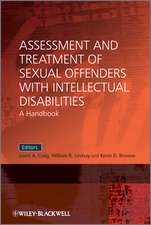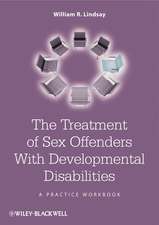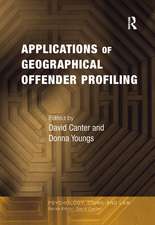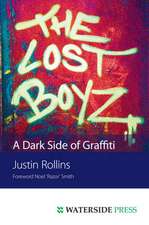Offenders on Offending: Learning about Crime from Criminals
Editat de Wim Bernascoen Limba Engleză Paperback – apr 2010
This is not always a straightforward process, however, and information from offenders is often unreliable. This book is about what we can do to maximise the validity of what offenders tell us about their offending. Renowned experts from various countries present their experiences and insights, with a clear focus on methodological issues of fieldwork among various types of offender populations. Each contribution deals with with a few central issues:
- How can offenders be motivated to participate in research?
- How can offenders be motivated to tell the truth on their offending?
- How can the information that offenders provide be checked and validated?
- What can we learn from offenders that cannot be accessed from other sources?
- With the aim of obtaining valid and reliable information, how, where and under which conditions should we observe offenders and talk to them?
| Toate formatele și edițiile | Preț | Express |
|---|---|---|
| Paperback (1) | 476.08 lei 6-8 săpt. | |
| Taylor & Francis – apr 2010 | 476.08 lei 6-8 săpt. | |
| Hardback (1) | 1012.34 lei 6-8 săpt. | |
| Taylor & Francis – apr 2010 | 1012.34 lei 6-8 săpt. |
Preț: 476.08 lei
Nou
Puncte Express: 714
Preț estimativ în valută:
91.11€ • 94.77$ • 75.22£
91.11€ • 94.77$ • 75.22£
Carte tipărită la comandă
Livrare economică 14-28 aprilie
Preluare comenzi: 021 569.72.76
Specificații
ISBN-13: 9781843927761
ISBN-10: 1843927764
Pagini: 344
Dimensiuni: 156 x 234 x 23 mm
Greutate: 0.61 kg
Ediția:1
Editura: Taylor & Francis
Colecția Willan
Locul publicării:Oxford, United Kingdom
ISBN-10: 1843927764
Pagini: 344
Dimensiuni: 156 x 234 x 23 mm
Greutate: 0.61 kg
Ediția:1
Editura: Taylor & Francis
Colecția Willan
Locul publicării:Oxford, United Kingdom
Cuprins
Foreword Preface Part 1: Setting the Stage 1. Learning About Crime from Criminals: Editor's Introduction 2. Misinformation, Misunderstanding and Misleading as Validity Threats to Offenders' Accounts of Offending 3. Apprehending Criminals: The Impact of Law on Offender-based Research Part 2: Prison Settings 4. Interviewing the Incarcerated: Pitfalls and Promises 5. Interviewing and Validity Issues in Self-report Research with Incarcerated Offenders: The Quebec Inmate Survey 6. Beyond the Interview: Complementing and Validating Accounts of Incarcerated Violent Offenders Part 3: Field Settings 7. Method, Actor and Context Triangulations: Knowing What Happened During Criminal Events and the Motivations for Getting Involved 8. Repeat, Triangulate and Reflect: Ethnographic Validity in a Study on Urban Minority Youth 9. Getting Good Data from People that Do Bad Things: Effective Methods and Techniques for Conducting Research with Hard-to-Reach and Hidden Populations Part 4: Social Categories of Offenders and Researchers 10. The Impact of Gender when Interviewing 'Offenders on Offending' 11. Talking to Snakeheads: Methodological Considerations for Research on Chinese Human Smuggling 12. Blue-collar, White-collar: Crimes and Mistakes Part 5: Learning About the Actn 13. Research on Residential Burglary: Ways of Improving Validity and Participants' Recall when Gathering Data 14. The Use of Maps in Offender Interviewing 15. Interviewing Offenders in a Penitentiary Environment and the Use of Mental Maps During Interviews 16. Validating Offenders' Accounts: Learning from Offender Interviews with Bank Robbers in Austrian Prisons
Notă biografică
Wim Bernesco is a Senior Researcher within the NSCR Mobility and Distribution of Crime group. His current research interests include spatial aspects of criminal activities, including variations in crime and delinquency between neighbourhoods, offender travel behaviour and target selection, and crime displacement.
Michael Tonry is Professor of Law at the University of Minnesota. He specializes in criminal law.
Michael Tonry is Professor of Law at the University of Minnesota. He specializes in criminal law.
Recenzii
'...this is an extremely interesting and teeming book, with absorbing methodological details, which, at points, transmits the excitement that offender-based research generates. It is a very much alive text in which the authors, coming from or researching a variety of contexts (including Austria, the Czech Republic and the criminologically ‘exotic’ Sri Lanka), share their extensive knowledge on the topic as well as their own experiences and stories....'
'Offenders on Offending: Learning about Crime from Criminals offers a very comprehensive account of the possibilities, problems and solutions that exist in the context of conducting qualitative research with offenders. It is an important collection full of learning and latent common sense—a work that blows open debates on philosophical and practical aspects of research, and is a must-have to every fervent researcher conducting this kind of research, postgraduate students, as well as social research methods teachers. Readers who are not acquainted with relevant research-related literature will find the references section of every chapter a little treasure. All these groups will find it a compulsively readable work, which constantly pushes for re-assessment of ideas, and which highlights why the bulk of criminological research needs to return ‘back to basics’ and re-embrace the offender as the protagonist in the theatre of ‘crime’ and deviance.'
-Georgios A. Antonopoulos, Teesside University, in The British Journal of Criminology, vol 52 iss 1
'Offenders on Offending: Learning about Crime from Criminals offers a very comprehensive account of the possibilities, problems and solutions that exist in the context of conducting qualitative research with offenders. It is an important collection full of learning and latent common sense—a work that blows open debates on philosophical and practical aspects of research, and is a must-have to every fervent researcher conducting this kind of research, postgraduate students, as well as social research methods teachers. Readers who are not acquainted with relevant research-related literature will find the references section of every chapter a little treasure. All these groups will find it a compulsively readable work, which constantly pushes for re-assessment of ideas, and which highlights why the bulk of criminological research needs to return ‘back to basics’ and re-embrace the offender as the protagonist in the theatre of ‘crime’ and deviance.'
-Georgios A. Antonopoulos, Teesside University, in The British Journal of Criminology, vol 52 iss 1
Descriere
The book addresses the issue of assessing the reliability of information about crime from offenders, taking stock of the various methods used to elicit information on offending from offenders and collecting useful information on criminal behaviour.















